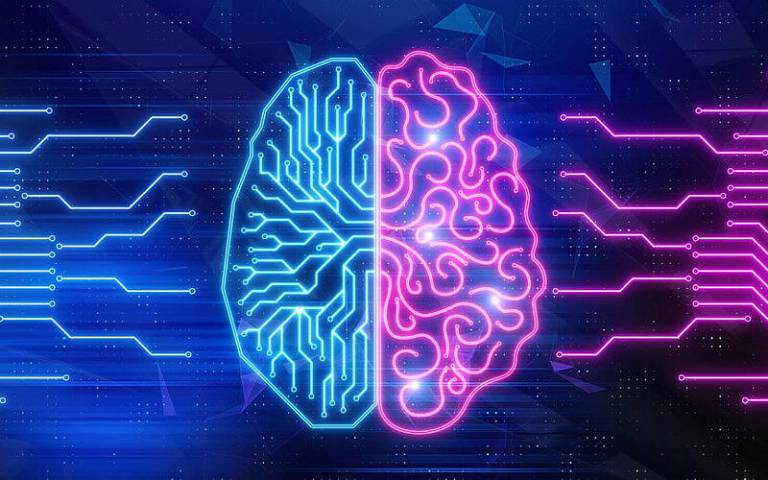UCL NeuroAI Talk Series | Daniel Yamins
17 February 2021, 4:00 pm–5:00 pm

'Self-Supervised Learning for Neuroscience and Artificial Intelligence'
Event Information
Open to
- All
Availability
- Yes
Organiser
-
Sabrina Moxom – SLMS Research Coordination Office
NeuroAI is a series of themed talks organised by the UCL NeuroAI community. This month's speaker is Daniel Yamins (Stanford University).
About NeuroAI
The last decade has seen phenomenal advances in the field of machine learning (AI) (e.g. deep learning, reinforcement learning). Such is the change that no area of science can afford to ignore it, least of all neuroscience.
Crucially, AI shares a common lineage with neuroscience, and provides a means to emulate neural functions and the circuits supporting them, delivering a normative understanding of the brain and cognition (e.g. Banino et al., 2018; Stringer et al. 2019; Dabney et al., 2020).
Equally AI tools provide a means to discover, segment, and track distinct neural and behavioural states (e.g. Mathis et al., 2018; Frey et al., 2019) - yielding more efficient experiments and accelerating the pace of discovery. In turn, this understanding feeds back into the design of more effective AI architectures and models (e.g. Sabour et al., 2017; Stringer et al, 2019, Dabney et al., 2020).
Essentially, AI problems posed in neuroscience both require and inspire further advances in AI.
About the Speaker
Daniel Yamins
Assistant Professor of Psychology and Computer Science at Stanford University
I'm a computational neuroscientist at Stanford University, where I'm an assistant professor of Psychology and Computer Science, and a faculty scholar at the Wu Tsai Neurosciences Institute. I work on science and technology challenges at the intersection of neuroscience, artificial intelligence, psychology and large-scale data analysis.
The brain is the embodiment of the most beautiful algorithms ever written. My research group, the Stanford NeuroAILab, seeks to "reverse engineer" these algorithms, both to learn both about how our minds work and build more effective artificial intelligence systems.
More about Daniel Yamins Close
Close

